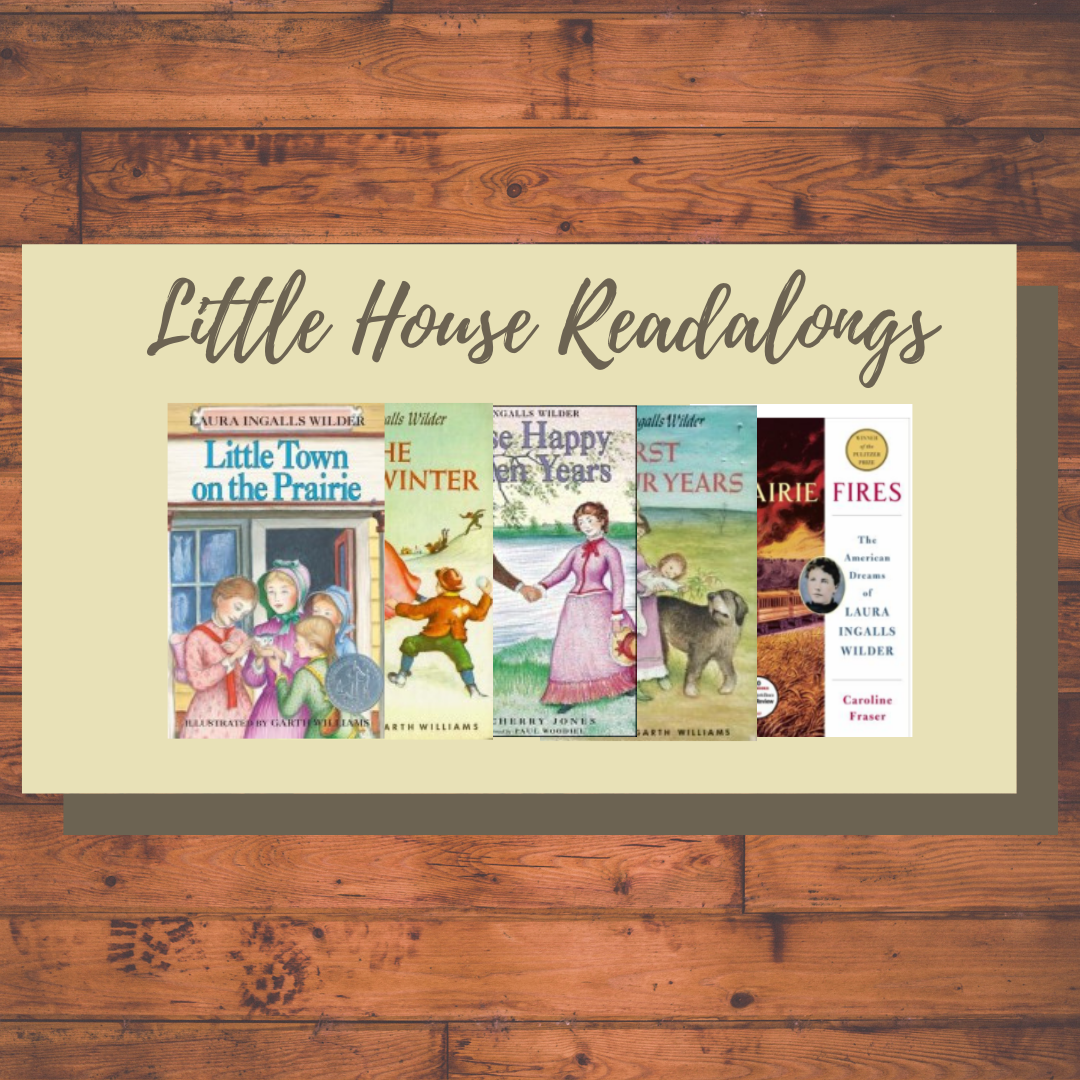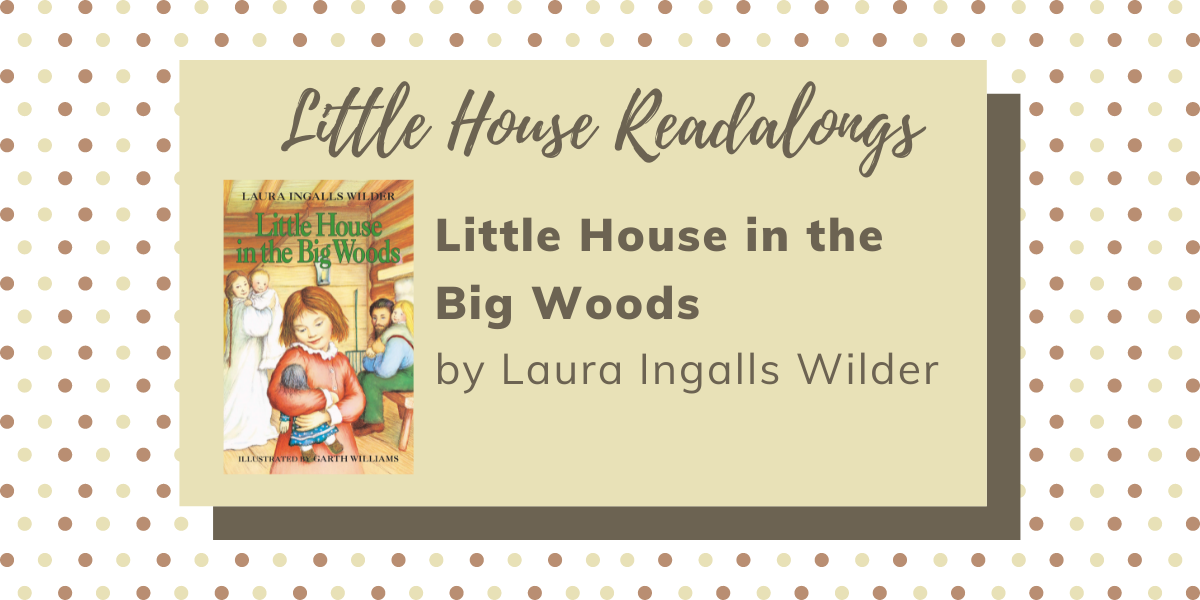
Rich people are easy to write about. They tend to leave a legacy – letters, photographs, records of their lives. Poor people, on the other hand, leave little behind – a family Bible, maybe, a cherished photo or two. This, Caroline Fraser says in Chapter One, Maiden Rock, means researchers and writers turn into detectives to determine all the pieces of the puzzle.
Charles Ingalls and the pioneers like him were just trying to survive as they moved from place to place. There was no room for a box of diaries or stacks of love letters. When you think about it, it’s pretty incredible – and a statement about Caroline’s personality – that they traveled with her old school readers and the big green book. How many other things were left behind that didn’t fit into the wagon? (On the other hand, how many things did they actually save only to have destroyed decades later?)
Here’s a little of what we know. Laura’s paternal lineage landed in the new world in 1628, with the arrival of Edmund. Like the generations to follow, Edmund struggled to become prosperous in this new land. One of Edmund’s granddaughters was hung in 1692 during the Salem witchcraft trials. The early Ingalls generations had the same itchy foot that Charles had. They moved from New England, to Canada to Cuba, NY. From there they moved to Elgin, Illinois and then to Jefferson county Wisconsin, near the village of Concord. This is where Charles and Caroline’s paths would converge.
Laura’s great-grandfather, Samuel, was a published writer in a family that would produce many story tellers and writers in future generations. In 1825 he published his Rhymes of “The Unlearned Poet”. Let’s not forget that Laura thought that her father was an incredible story teller (all the stories of his childhood weaved through the pages of LHITBW). Laura’s mother was also a wordsmith. She wrote an essay. ‘The Ocean’ that details her biological father’s death, that still survives today. She became a school teacher and named her first born daughter after her own school teacher, Mary J. Moore. She also saved her schoolbooks to teach her own children as they crossed the prairies.
Maiden Rock is the chapter that takes us on the original journey of Charles and Caroline, from their childhoods, to their marriage, to their arrival in Pepin. Okay, well, it was mostly Charles’ childhood adventure that was detailed; Caroline’s life story was sparse. Was it because they were even more poor and left even less of a legacy?
What we know is that two families came to Wisconsin looking for something better. And for a while, there was something better. Pa was a farmer and he owned land near Concord. Then came the Civil War and the banks failed and there was rampant unemployment across Wisconsin. Farmers couldn’t sell their crops for a decent price. Charles lost his farm. It was around this time they went north to Pepin, where Caroline’s sister Martha and her husband lived. It seemed like a migration of the whole family.
But the migration may not have been completely driven by the economy. The Civil War was in full swing and the army was looking for “recruits.” Again, poverty plays into this. Wealthy men on the east coast were able to pay for substitutes to go to war for them. The men in Wisconsin feeling the effects of a bad economy were trying to come up with reasons why they couldn’t be spared at home, probably unsuccessfully. Charles, Fraser speculates, never enlisted and may have drifted through the wilds of Wisconsin to avoid being accounted for, along with hundreds if not thousands of other men and families. While you can’t fault Charles for not wanting to go to war, not after his brother-in-law died essentially from neglect in a hospital, it is a telling sign of his character that we see in both the Little House books and in biographies. Poverty is a part of Charles Ingalls’ DNA and he seems to always on the run, either to or from something.
We don’t know for sure what took Pa and Ma to Pepin, but they didn’t follow a road of lined with gold to get there. For many of us, the bigger question is why they left. In September, a group of LauraPalooza faithful sat outside the Wayside Cabin, seven miles outside of Pepin, wondering why on earth Pa would ever choose to leave this area. We saw how beautiful it was. We saw lots of farmland that appeared to be flourishing. We remember Little House in the Big Woods and the abundance of foods. What on earth happened that pushed him out of Pepin County?
We may never know what really happened during the Ingalls second go-round in the Little House, the time chronicled in that first book, and why they decided to leave. Poor people don’t leave detailed records. But history does. And history showed that for families like the Ingalls, things weren’t so great near Maiden Rock during and after the Civil War. Leaving may have been the only way to survive.
The Maiden Rock chapter isn’t Laura’s story; it’s her parents’ story. She’s born in this chapter, at the very end, moments before we learn that Charles and Caroline are preparing to make their first move as their own little family. This is not the story of Little House in the Big Woods. Rather, this is the chapter that shows you where Charles and Caroline came from, but literally and figuratively. This is the stage on which Laura’s foundation is built.


Comments3
As you write in this article researching history can be a tricky thing. Detective work often only goes so far and then one can only speculate. We will probably never know while Charles didn’t serve in the Civil War. We do know that two of his brothers, George, and my own great-great-grandfather, Lansford “James”, did fight in the war. George, it has been reported, was even underage when he enlisted. So perhaps patriotism did run in the Ingalls family. Possibly Charles looked at his new bride and was fearful of what would become of her. I find it interesting that their first child, Mary, wasn’t born until almost a full five years later after their wedding. How was that possible in this era? Was he away? Was she suffering from malnutrition? So many questions that will never be answered. I lean more towards the idea that his lack of service was perhaps not a result of his character but of circumstance.
I am so excited to learn more about the Ingalls! My children were read The Little House books often, they now have their own families. I will enjoy re-reading the books and discovering new information in this new book. Can’t wait to share stories with my grandchildren!
Has Caroline’s essay been published anywhere?
Comments are closed.